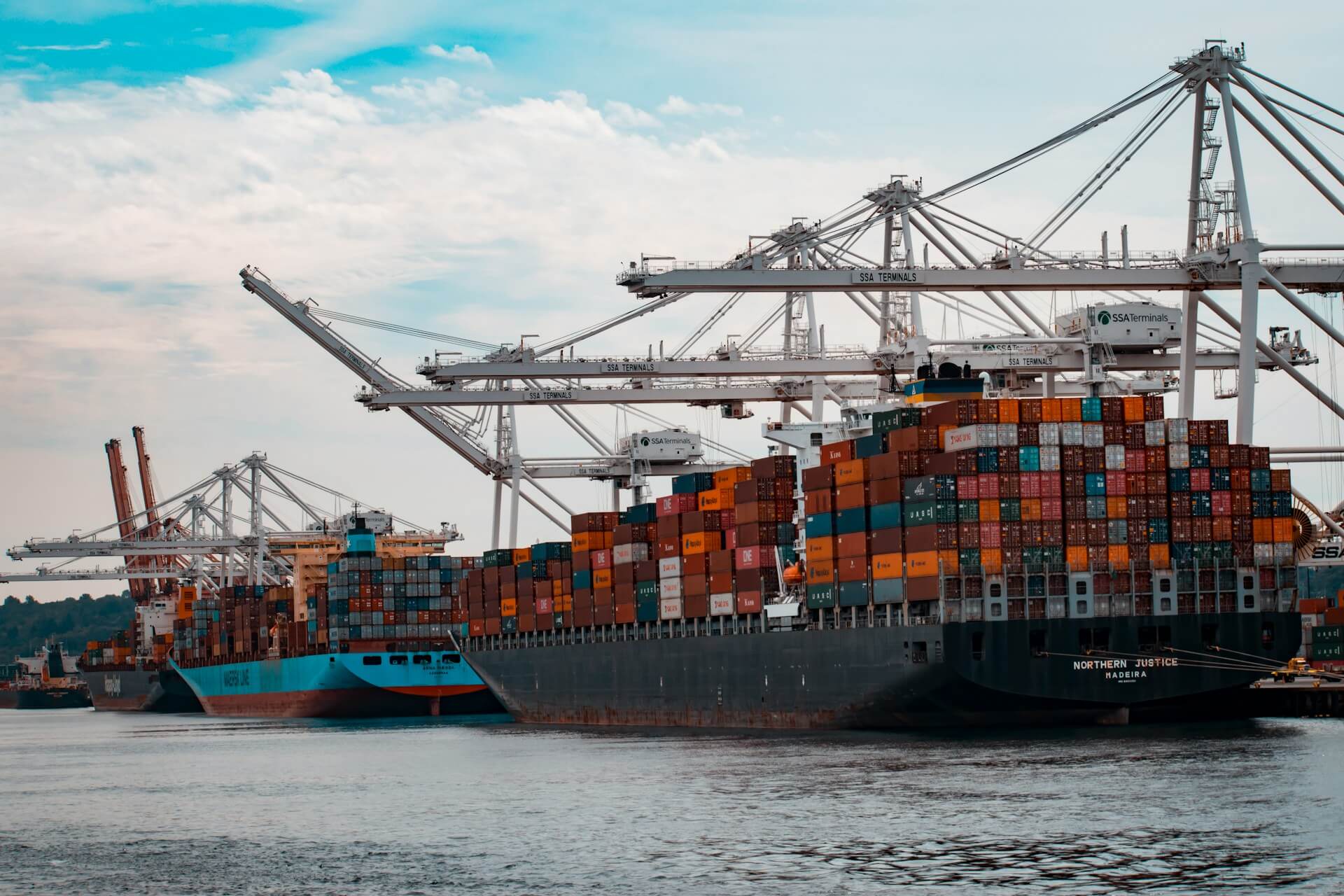Port-to-Port At Scale: Navigating the Volatility of the Marine Cargo Transportation Industry
A comprehensive overview of the necessary insurance solutions for the marine transportation industry.
Protecting Your Shipping Cargo Business: Essential Insurance Coverage for Marine Transportation
The marine cargo transportation industry faces unique challenges, ranging from vessel accidents and cargo theft to environmental regulations and delivery delays. As shipping operations increase in complexity and scale, ensuring that your business is adequately protected requires specialized insurance. This resource page explores the key insurance policies that marine cargo transport companies need to safeguard their vessels, cargo, operations, and clients, ensuring smooth and efficient port-to-port deliveries in a high-risk, fast-paced industry.
Cargo Insurance: Ensuring Safe Delivery of Goods
Cargo insurance is vital for protecting goods in transit, covering damages, losses, or theft during shipping. Whether transporting raw materials, consumer goods, or perishable items, this coverage ensures that the business does not face crippling financial consequences when goods are lost or damaged during transportation.
Key Insights:
- Comprehensive Coverage: Cargo insurance covers risks ranging from theft to natural disasters or accidental damage during transit. Policies can be customized for specific types of cargo, such as high-value electronics, food products, or hazardous materials.
- Global Shipping: With operations spanning international waters, cargo insurance is essential for navigating varying regulations and ensuring that goods are adequately protected across multiple jurisdictions.
Pinch: Without cargo insurance, lost or damaged goods—especially valuable or time-sensitive products—could result in lost revenue, breach of contract, and client dissatisfaction. For a business that relies on just-in-time shipping, this could be a devastating setback.
Marine Liability Insurance: Protecting Against Third-Party Claims
Marine liability insurance is essential for covering the costs of third-party claims related to property damage or personal injury that occur during the shipping process. This includes incidents where the ship collides with other vessels, causes environmental damage, or injures individuals during loading or unloading operations.
Key Insights:
- Third-Party Incidents: Whether a collision occurs during docking or a cargo spill impacts neighboring ecosystems, marine liability insurance covers the legal costs, medical expenses, and settlements involved in third-party claims.
- Extended Protection: Marine liability insurance also provides coverage for injuries to dock workers or damage to port facilities, which can be costly and disrupt operations.
Pinch: A collision or environmental spill can result in massive legal and financial repercussions, including fines, recovery costs, and damage to client relationships. Without proper marine liability insurance, these risks can severely hinder business continuity and tarnish a company’s reputation.
Hull and Machinery Insurance: Safeguarding Your Vessel
Hull and machinery insurance is critical for protecting the physical vessel and its machinery from damage caused by accidents, weather events, or mechanical failure. Given the high cost of ships, especially in commercial cargo transportation, securing hull and machinery insurance ensures that vessels can be quickly repaired or replaced after an incident, minimizing downtime.
Key Insights:
- Protection Against Accidents: The risk of vessel damage is ever-present, from storm damage to collision incidents. Hull and machinery insurance covers the repair or replacement costs for the vessel, including damage to onboard machinery that could prevent the ship from operating.
- Critical for Large-Scale Shipping Operations: Shipping companies rely on their fleet for continuous operations, and without hull and machinery insurance, even a single accident can result in devastating delays and costs.
Pinch: Without hull and machinery insurance, even a minor incident can lead to a massive financial burden. Damage to vessels or onboard machinery can halt operations and require costly repairs, resulting in lost income and delayed deliveries.
Environmental Liability Insurance: Mitigating Pollution and Environmental Damage
Shipping cargo involves risks that can lead to environmental damage, such as fuel spills or the release of toxic cargo into the water. Environmental liability insurance protects marine transport companies from the financial consequences of pollution, helping cover clean-up costs, fines, and third-party claims arising from environmental incidents.
Key Insights:
- Compliance and Reputation: With increasing regulatory pressure to meet environmental standards and reduce emissions, this insurance helps protect businesses from non-compliance penalties and damage to their reputation.
- Coverage for Environmental Damage: Whether caused by a cargo spill, fuel leak, or hazardous materials release, environmental liability insurance ensures that the company can afford the costs of remediation and meet regulatory obligations.
Pinch: Without environmental liability insurance, a fuel spill or chemical leak could result in massive cleanup costs, legal liabilities, and long-term damage to public trust. The financial consequences of such incidents can cripple a business, making this coverage crucial for long-term sustainability.
Conclusion: Securing Your Marine Cargo Business with Comprehensive Coverage
The marine cargo transportation industry operates in a high-risk environment, where the potential for vessel accidents, cargo theft, environmental damage, and third-party claims is ever-present. Securing the right insurance policies—such as cargo insurance, marine liability insurance, hull and machinery insurance, and environmental liability insurance—is crucial for mitigating these risks and ensuring continuous operations.
By partnering with an experienced insurance broker who understands the intricacies of marine cargo operations, businesses can safeguard their assets, protect their clients, and ensure business continuity. With the right insurance solutions, companies can confidently navigate the complexities of the global shipping industry, ensuring they remain competitive and resilient in an ever-evolving market.



